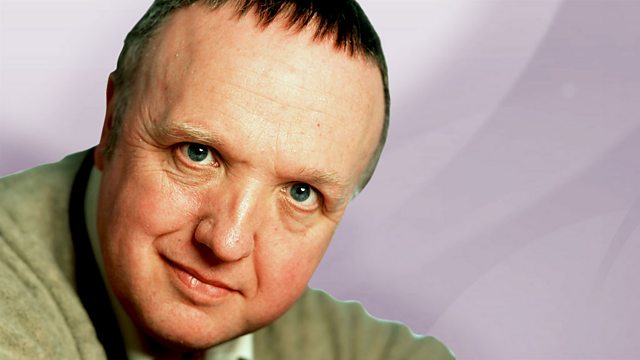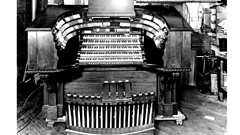
Popular Organ Recordings
Nigel Ogden presents a programme of popular organ recordings with some entertaining pieces from the organ world.
Last on
More episodes
Previous
Clip
-
![]()
Reginald Foort's Touring Moller Organ
Duration: 01:16
Music Played
-
![]()
David Heggarty
Hooray For Hollywood
Composer: Whiting, Mercer Arranger: N/A
- www.davidheggarty.com.
- NFI.
-
![]()
David Shepherd
Selection – Spring Parade
Composer: Stolz, Kahn Arranger: N/A
- BFC.
- BFC 001.
-
![]()
Adrian Self
The Syncopated Clock
Composer: Anderson Arranger: N/A
- Priory Records.
- PRCD 1089.
-
![]()
Eddie Ruhier
Brown Dog Boogie
Composer: Ruhier Arranger: N/A
- Grosvenor Records.
- CDGRS 1306.
-
![]()
Reginald Foort
Smile Darn Ya Smile
Composer: O’Flynn, Maskill, Rich Arranger: N/A
- Piping Hot.
- PH 2006.
-
![]()
Reginald Foort
With A Smile And A Song
Composer: Churchilll Arranger: N/A
- Piping Hot.
- PH 2006.
-
![]()
Reginald Foort
When Irish Eyes Are Smiling
Composer: Graff, Ball, Olcott Arranger: N/A
- Piping Hot.
- PH 2006.
-
![]()
The Organ, the Dance Band & Me
I'd Never Never Fall In Love Again
Composer: Gay, Butler Arranger: N/A
- Empress.
- RAJ CD 843.
-
![]()
Walt Strony
Nessun Dorma
Composer: Puccini Arranger: N/A
- Nor-Cal.
- TOS-101.
-
![]()
Charlie Balogh
You're The One That I Want
Composer: Farrar Arranger: N/A
- ERB Enterprises.
- ERB 121.
REGINALD FOORT

THE-MOLLER WORKSHOP1938

Reginald Foort's Touring Moller Organ
Reginald Foort was the first official ���˿��� Theatre Organist between 1936 and '38. During that time, he formulated plans to travel around the with a touring pipe organ, playing for a week at a time at theatres and music halls which didn't already have an instrument of their own. Working on the basis that there was no point turning up somewhere with an instrument which wasn't at least as impressive as one which may already exist in a cinema round the corner, Foort decided he needed something which really made an impact. So, he designed an organ with five manuals (keyboards), pedals, 27 ranks of pipes plus percussion instruments and had it built by one of America's leading manufacturers of the time, the firm of J. P. Möller - there were no other Möller organs in the UK at the time and, in fact, never have been since then. Reg. Foort had sections of the organ constructed in specially built frames so that the whole instrument didn't have to be dismantled every time he finished a week at one particular venue and was ready to move on to the next. These sections plus the blowing mechanism and the console were then loaded onto a fleet of large lorries with Reginald Foort's name emblazoned on the side and the whole instrument was then transported to its next port of call, usually on a Sunday, re-installed and tuned during the course of Monday and was ready to play the first show of the week that evening. The first venue was the Palace Theatre in Manchester in November 1938 and my parents were in the audience for that first night!
All went well for a couple of years, even into the early days of world war two when, due to fuel rationing, the lorries had to be rested and Foort continued touring by train with the size of the instrument reduced by a third. Eventually, it all became impossible and as the ���˿���'s own theatre organ had been destroyed by one of the first bombing raids on London in 1940, Foort offered the Corporation the use of the Moller for the duration of the war, during which time it was installed in a couple of locations in North Wales - the Grand Theatre, Llandudno and the County Theatre in Bangor. This meant the ���˿��� was able to continue with its daily theatre organ broadcasts until, at the end of the war, they bought the Moller outright and it became the second ���˿��� Theatre Organ - more about that phase of its life next week!
Broadcast
- Tue 4 Jun 2013 21:30���˿��� Radio 2


